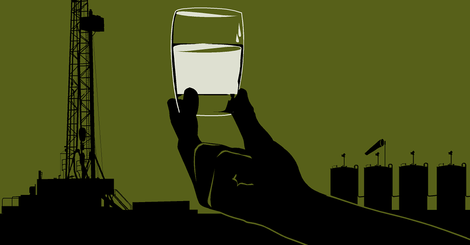Your podcast discovery platform
Curious minds select the most fascinating podcasts from around the world. Discover hand-piqd audio recommendations on your favorite topics.

piqer for: Climate and Environment Global finds Globalization and politics
I'm a freelance journalist, currently based in Madrid. I used to be a News Producer at CNBC in London before, but I thought a little bit more sun might do me good. Now I write for several news organizations, covering a range of topics, from Spanish politics and human rights for Deutsche Welle to climate change for La Marea.
The Manipulation Behind US Environmental Policies Exposed
Hydraulic fracturing is a technique used to extract gas from shale rock formations. It's based on shattering the rock through a mix of water, sand and chemicals, liberating the methane from the ground and pulling it up through a well. Better known as fracking, this method is controversial for many reasons, from earthquakes to the big picture: Weren't we supposed to cut down on fossil fuels?
One of the warhorses of the fight against fracking is the alleged threat to human health through the pollution of drinking water. It turns out, leaks are common, and the chemicals contained in the fracking mix are not something to dunk your doughnut in for breakfast.
This is the story of Bryan Latkanich, from Pennsylvania, and his son. After Chevron Appalachia started fracking, literally, in their backyard, their health got worse. Their plight has taken them to face an industry worth billions and a whole array of dodgy politicians.
But this is also the story of Cadmus, a scientific research company working for the EPA as an independent contractor in the early years of the century. Cadmus' scientists researched the potential threat that fracking could pose to drinking water. The idea was to find out if gas and oil companies should be required to disclose the chemicals used in their fracking mix. The result: manipulation.
The Cadmus scientists came to believe that abiding by the EPA's conclusion violated their standards of integrity. "If you say there is no risk associated with hydraulic fracturing, and we see risk, you either didn't do a good job or you're lying," Sham said. "The data and analyses tell us there is risk associated with it, and we were asked to report there is no risk, and we can't say that."
And, overall, this is a story of the inequality between those who cause environmental damage and those who suffer from it. And this is just one part of a larger set of investigations. InsideClimate News may well deserve a Pulitzer. Again.
Stay up to date – with a newsletter from your channel on Climate and Environment.
